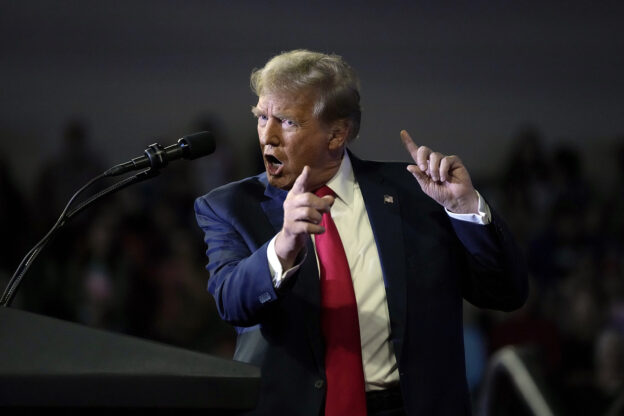
(RNS) — This past month, a group of self-styled American Christian prophets released an urgent word from God on YouTube about an impending Islamic uprising in the U.S. Pointing to pro-Palestinian protests on college campuses, they declared that an “insurrection is forming that is like unto the communist takeover in Russia. … This is not only about bringing a Palestinian state to the Middle East but an Islamic state to North America and other nations.”
The good news, according to these prophets, is that God also says, “If the church repents, I will relent. I will protect your nations.”
If this God-speaking-through-prophets-and-warning-nations-about-other-religions business sounds fringy and oddball in modern Christianity, it once was. But such prophecies and these prophets are rapidly redefining mainstream American evangelical theology, practice and politics. They are affiliated with a movement called the New Apostolic Reformation, a set of leadership networks whose leaders call themselves modern-day apostles and prophets and believe they are commissioned by God to take over the world.
This NAR movement runs like a golden thread through recent flashpoints of evangelical Christian support for Donald Trump, Christian nationalism and Christian extremism. NAR leaders were central to the mobilization of Christians for the Jan. 6 insurrection, and many apostles, prophets and NAR symbols were present around the U.S. Capitol that day. NAR ideas helped inspire the recent controversy surrounding the Alabama Supreme Court in vitro fertilization ruling. House Speaker Mike Johnson flies a flag outside his office that is closely associated with the NAR’s aggressive prophetic politics.
The reasonable objector may argue that all of those things might be true, and yet the NAR could still be a fringe movement. How much influence do NAR ideas have on broader American evangelicalism?
It’s true that the NAR networks come from the amorphous nondenominational, charismatic sector of American evangelicalism that seeks to restore the supernatural dimensions of early Christianity. Historically these groups have been outside the evangelical mainstream.
But we have collected data showing just how far these NAR-associated beliefs and practices have spread within American evangelical communities. The present-day reach and influence of these ideas may be shocking to those acquainted with conventional evangelicalism. Charismatic theologies, NAR prophecies and radical politics that once operated on the margins of evangelicalism have moved to the center of the action. Perhaps unsurprisingly, this transformation has a lot to do with Donald Trump.
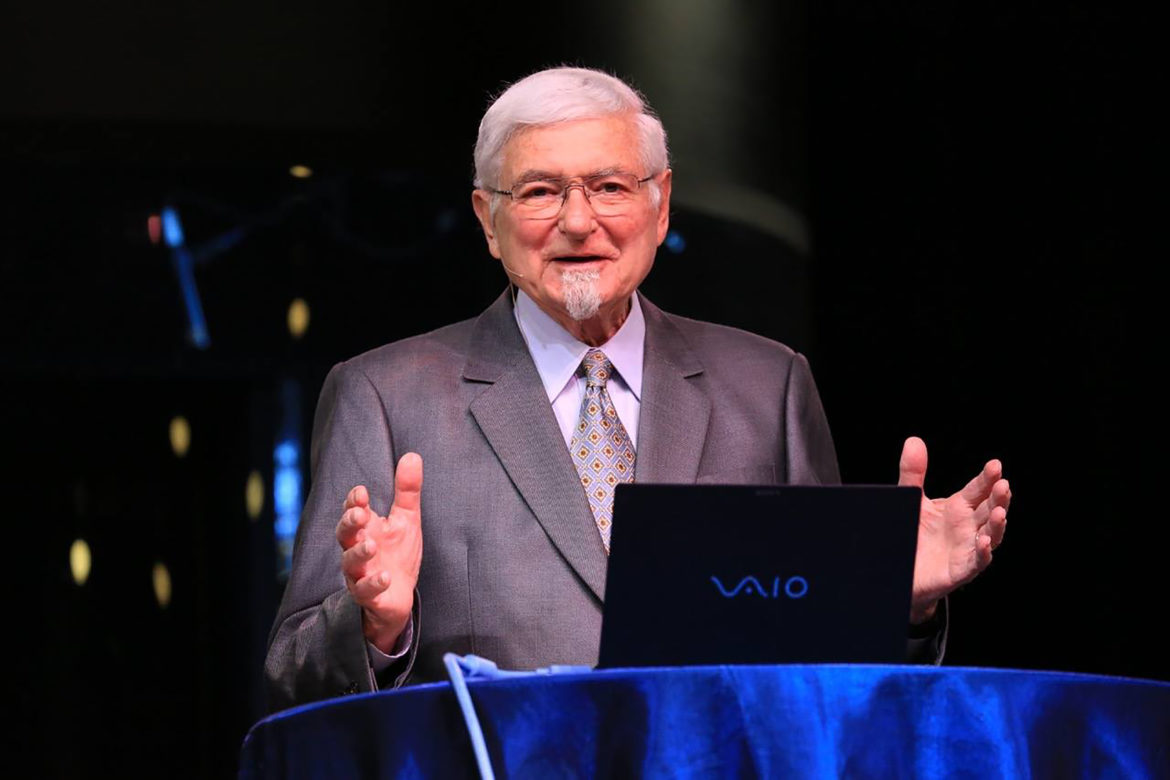
C. Peter Wagner was an influential theologian who promoted charismatic worship in evangelical churches. (Photo courtesy of Global Spheres Inc.)
The New Apostolic Reformation refers to a set of charismatic leadership networks established in the late 1990s and early 2000s by a renegade evangelical seminary professor named C. Peter Wagner. Almost all of its leaders, including Wagner himself, believed themselves to be newly commissioned apostles and prophets, endowed with immense supernatural authority to revolutionize the church, to defeat Satan and his demons and build the kingdom of God on earth.
Wagner deemed the newly minted apostles and prophets “generals of spiritual warfare,” who were guided by the Holy Spirit to lead prayer and warfare campaigns to defeat the demonic principalities (or “territorial spirits”) who control actual physical territory and hold the United States under their sway. The recent prophecy about Islam taking over America is of a piece with other NAR prophecies that threaten gloom and doom or promise a Christian utopia in America if the church will just defeat America’s (literal) demons.
Wagner and his fellows deeply believed they would provide the spark for a global “Third Great Awakening,” where, as one cherished prophecy put it, a “billion-soul harvest” of conversions to charismatic Christianity would upend societies around the world.
In the intervening decades, NAR ideas and leaders have become extremely popular in charismatic media, functioning as some of the top-tier thought leaders in the burgeoning nondenominational charismatic world. NAR networks also became increasingly politicized in the late 2000s, especially by a prophecy called the Seven Mountain Mandate, first formulated by NAR apostle (and Wagner mentee) Lance Wallnau.

Televangelist Lance Wallnau explains the significance of a gold coin featuring King Cyrus and President Donald Trump on the Jim Bakker Show in May 2019. (Video screen grab)
The Seven Mountains prophecy imagines every society as having seven major arenas of influence — religion, family, education, government, media, entertainment and commerce — and the prophecy commands Christians to conquer the tops of each of these mountains so that Christian influence can flow down into broader society. Put simply, the Seven Mountain Mandate is a prophetically derived, systematic program for Christian supremacy.
Shortly after Trump declared his candidacy for president in summer of 2015, he enlisted his friend and spiritual adviser, Paula White-Cain, a charismatic apostle and televangelist, “to be the bridge between him and evangelicals.” White-Cain began by inviting many of her fellow charismatic evangelical leaders — Messianic rabbis, televangelists, prophets, NAR apostles and megachurch pastors — to meet with Trump early in the campaign.
These were the first evangelical leaders to begin endorsing Trump, signing on to his policy agenda and offering theological rationales for choosing Trump over other, more conventionally evangelical candidates. The popular idea that Trump was anointed by God (like the ancient Persian emperor Cyrus) to be president and play a special role in protecting Christians was originally championed early in the 2016 campaign by none other than Wallnau, who was involved in the 2015 meetings organized by White-Cain.
A few months later Wagner himself endorsed Trump in early 2016, and Wallnau and the other NAR leaders became the chief Christian propagandists surrounding Trump with theology and prophecy. They have written books, created memes, prophetically appropriated symbolic pieces of Americana and launched massive prayer and spiritual warfare campaigns, all to see Trump victorious.
Charismatics, including a number of NAR apostles and prophets, have made up more than half of all of Trump’s evangelical advisory boards, including the new one for his 2024 campaign. In fact, these networks of NAR leaders were the central nervous system of Christian organizing and mobilization for Jan. 6, and many core NAR leaders, including Wallnau, were present at the Capitol that day.
Jan. 6 religiosity may strike many readers as the definition of fringe. How many Christians today actually believe these NAR ideas or support NAR politicized prophecies and spiritual-warfare practices?
To find out, we surveyed 1,500 self-identified Christians in early January 2024, weighting the sample so that it reflected the demographic profile of American adult Christians. Like other surveys, this one was split 50% self-identified evangelical and 50% nonevangelical. The figure below shows agreement with seven statements of charismatic theology which principally originated among the NAR networks. The bars represent the percentage who agree or strongly agree with the statement; the orange bars show that percentage among evangelicals, while the blue bars are the nonevangelical Christian responses.
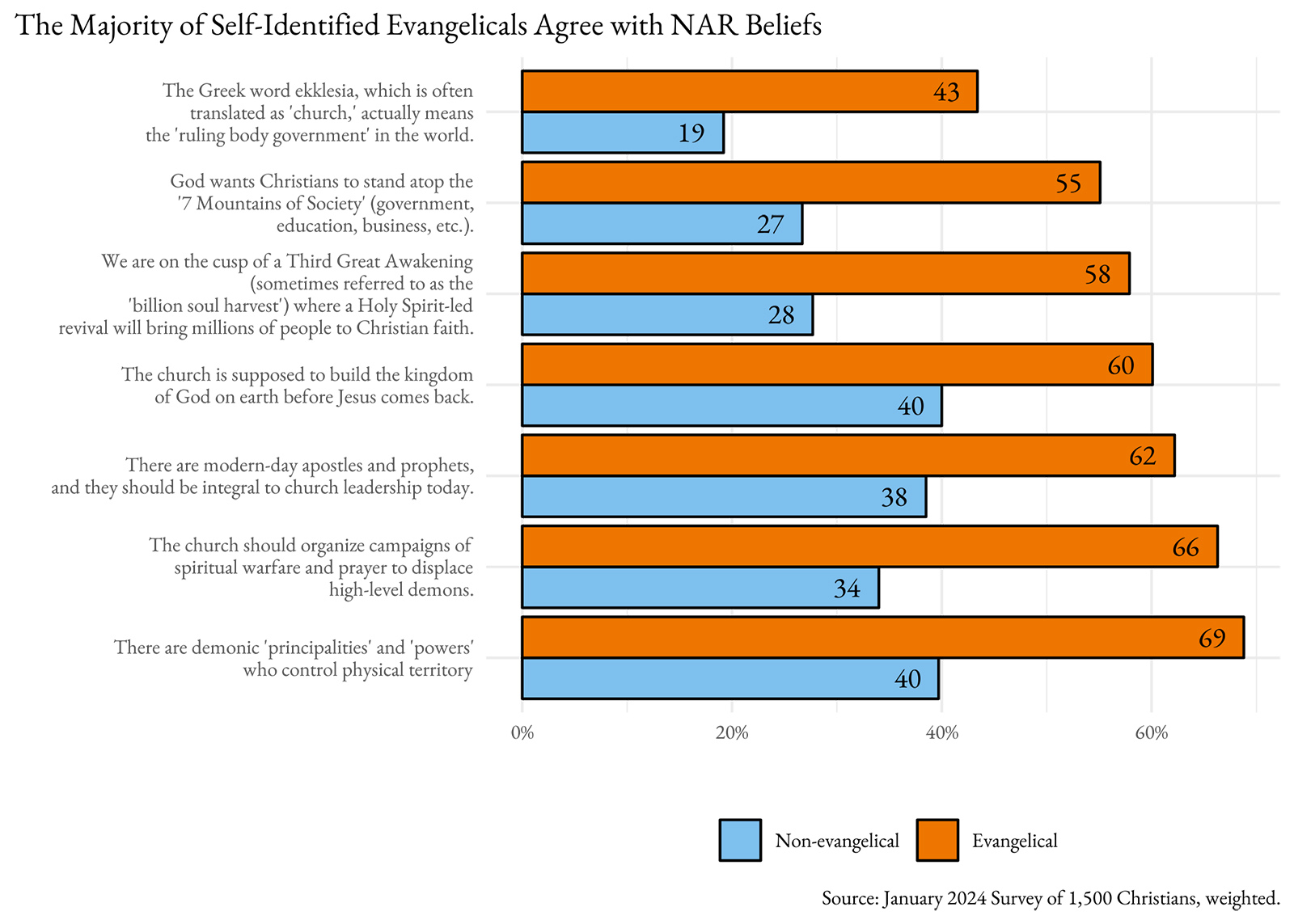
“The Majority of Self-Identified Evangelicals Agree with NAR Beliefs” (Courtesy graphic)
Strikingly, strong majorities of evangelicals indicate agreement with six of the seven statements, with up to 69% agreeing with the idea that demonic principalities and powers control physical territory. Lagging not far behind is the 66% who agree that the church needs to engage in spiritual warfare to displace high-level demons. Somewhat fewer evangelicals (55%) agree with Wallnau’s prophecy that God wants Christians to stand atop the Seven Mountains of society.
Almost 40% of our Christian sample identifies as either charismatic (or “Pentecostal” or “spirit-filled,” both rough synonyms for charismatic). A narrow majority (51%) of self-identified evangelicals claim a charismatic identity, but so do 24% of nonevangelicals.
It is also important to note that while charismatic Christians are more likely to ascribe to an NAR worldview, agreement with the survey statements does not line up exclusively with an affirmative charismatic identity. The figure below shows that 78% of charismatic evangelicals agree that there are demonic principalities and powers who control physical territory, but so do 59% of evangelicals who do not claim a charismatic identity.
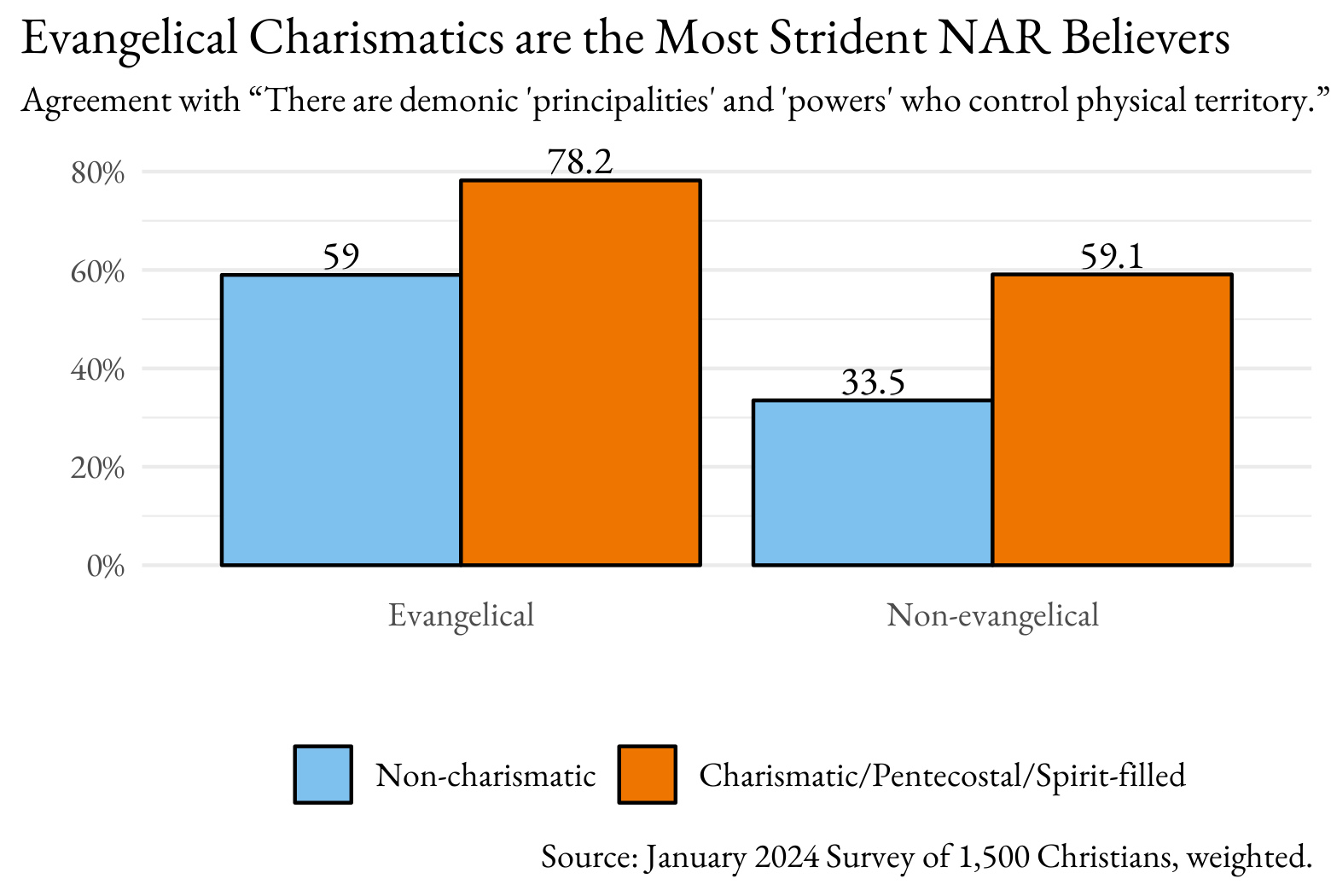
“Evangelical Charismatics are the Most Strident NAR Believers” (Courtesy graphic)
Charismatics who don’t identify as evangelicals also show majority support for the territorial spirits notion (59%), which only drops below a majority (to 34%) for nonevangelical, noncharismatics. In short, these NAR ideas and theologies have spread far beyond the explicitly charismatic circles in which they originated.
In other words, what not long ago seemed to be a marginal set of beliefs has become a dominant religious framework among American Christians. We’ve known for quite some time that charismatics and Pentecostals were the fastest-growing Christian group in the country, but no one has shown yet just how widespread NAR-linked beliefs are, or how far they extend beyond a charismatic/Pentecostal identification. From our evidence, it is no surprise that we are hearing much more talk from religious leaders about demons and spiritual warfare.
The fact that these NAR-affiliated Christians make up the core of Christian Trump support and the new base of the Republican Party also helps explain why many elected officials have taken a decidedly charismatic turn. It explains why a Southern Baptist in good standing like Mike Johnson would be linking arms with NAR apostles, why provocateur Roger Stone has claimed he too is the subject of prophecies and announced in 2022 that he had a vision of a demonic portal above Joe Biden’s White House. It explains why former Texas Gov. Rick Perry would propagate the notion of Trump being anointed by God.
Shortly after Donald Trump was elected in 2016, Andy Card, one of George W. Bush’s former chiefs of staff, commented, “The rug of American politics used to have more rug than fringe. Today, the rug seems to have little rug and a lot of fringe.”
Card was describing a tectonic shift in the tone and tenor of Republican politics in the age of Trump, but the same can be said of American evangelicalism. The combined force of Trump’s insurgent politics and the popularity of the Christian leaders surrounding him have together transfigured American evangelicalism. The fringe has become the carpet, and ideas that emerged decades ago on the evangelical margins are today drawing more and more Christians into zealous Trump support.
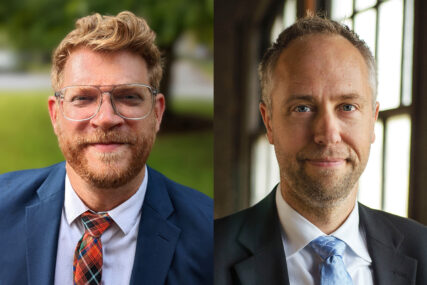
Matthew D. Taylor, left, and Paul A. Djupe. (Courtesy photos)
(Matthew D. Taylor is a senior scholar at the Institute for Islamic, Christian and Jewish Studies and the creator of the award-winning audio series “Charismatic Revival Fury.” His forthcoming book, “The Violent Take It by Force,” is about NAR leaders’ role in the Jan. 6 insurrection. Paul A. Djupe directs the Data for Political Research program at Denison University and is co-author of “The Full Armor of God: The Mobilization of Christian Nationalism in American Politics.”)
